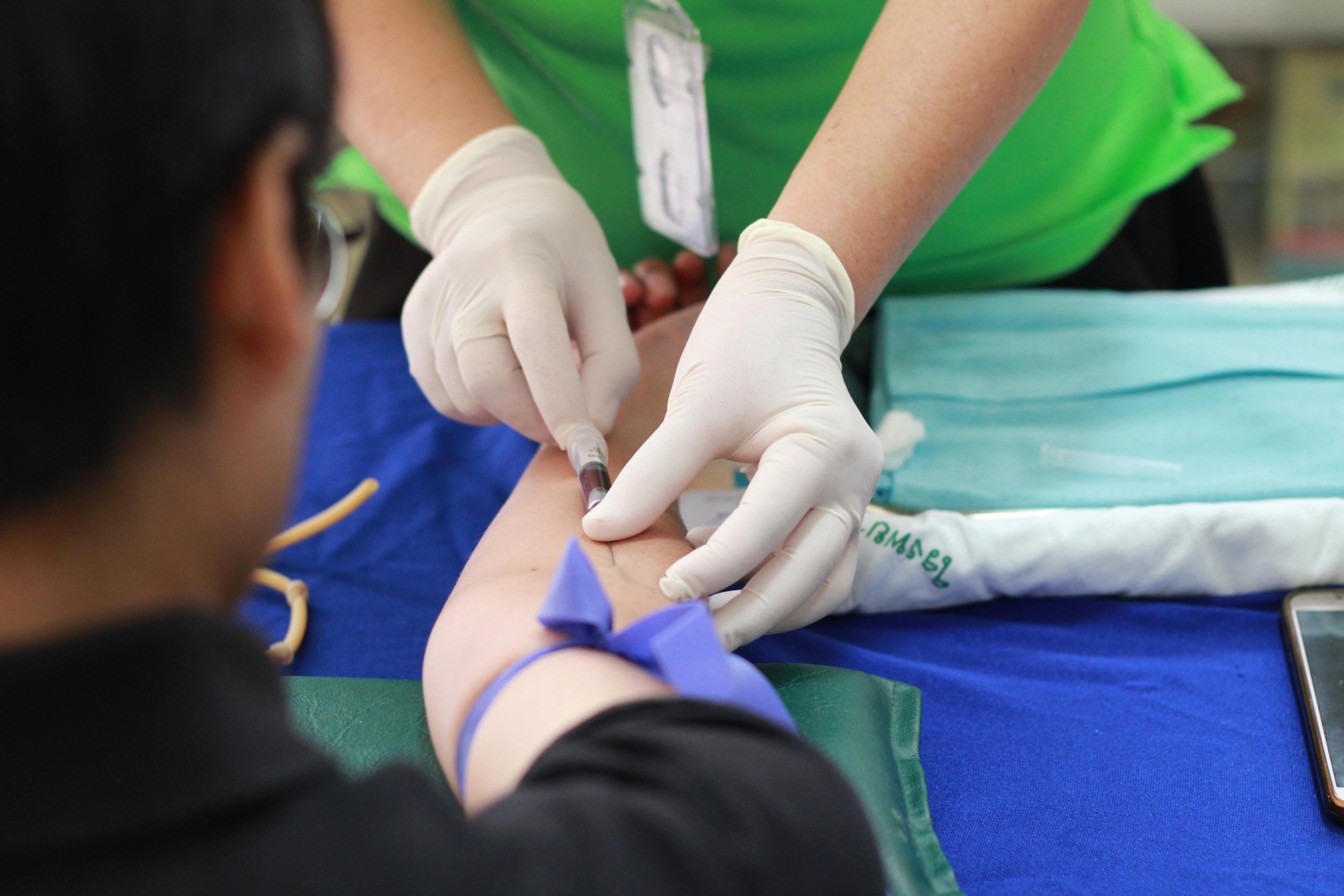Immunity Screen Blood Test
Venous & Capillary Blood Sample
3 Biomarkers - Measles, Rubella, Varicella Zoster
A blood test that is typically used to assess immunity or detect past infections for these specific viral diseases. Here’s a detailed look at each biomarker and the benefits of this blood test:
Results expected within 3 working days.
Free delivery
Venous & Capillary Blood Sample
3 Biomarkers - Measles, Rubella, Varicella Zoster
A blood test that is typically used to assess immunity or detect past infections for these specific viral diseases. Here’s a detailed look at each biomarker and the benefits of this blood test:
Results expected within 3 working days.
Free delivery
Venous & Capillary Blood Sample
3 Biomarkers - Measles, Rubella, Varicella Zoster
A blood test that is typically used to assess immunity or detect past infections for these specific viral diseases. Here’s a detailed look at each biomarker and the benefits of this blood test:
Results expected within 3 working days.
Free delivery
Special instructions
How to prepare for your test
Prepare for your Immunity Blood Test by following these instructions. Do not take biotin supplements for two days before this test, discuss with your doctor if it is prescribed.
FAQ’s
-
Descri1. Measles (Anti-Measles IgG Antibodies)
Measles is a highly contagious viral infection that causes symptoms such as fever, cough, runny nose, and a characteristic red rash.
Benefits:
Confirm Immunity: Testing for IgG antibodies to measles helps confirm whether a person is immune to the virus, either due to prior infection or vaccination. Measles vaccination (usually part of the MMR vaccine, which also covers rubella and mumps) provides lifelong immunity in most cases.
Screening Before Travel: This test can be helpful for individuals planning to travel to areas where measles outbreaks are common, ensuring they are protected.
Detecting Past Infection: The presence of IgG antibodies indicates a past exposure to the virus, suggesting that the person had measles earlier in life, or that they were vaccinated against it.
Pregnancy Planning: For women who are pregnant or planning pregnancy, immunity to measles is important, as contracting the virus during pregnancy can cause complications. Testing can confirm immunity before conception.
2. Rubella (Anti-Rubella IgG Antibodies)
Rubella, also known as German measles, is a viral infection that can cause a mild rash and fever in children, but it can lead to serious birth defects if contracted during pregnancy.
Benefits:
Assessing Immunity: Anti-rubella IgG antibodies indicate immunity to rubella, either due to past infection or vaccination. This is particularly important for women of childbearing age, as rubella infection during pregnancy can lead to congenital rubella syndrome (CRS), which causes birth defects such as heart problems, hearing loss, and developmental delays.
Pregnancy and Birth Defect Prevention: Testing for rubella immunity before pregnancy is crucial. Women who are not immune to rubella can get vaccinated before pregnancy (but should wait at least a month after vaccination before trying to conceive).
Screening for Vulnerable Populations: Rubella testing is important for pregnant women or those planning pregnancy to ensure they do not contract rubella, which can harm a developing fetus.
3. Varicella Zoster (Anti-Varicella Zoster IgG Antibodies)
Varicella Zoster is the virus responsible for chickenpox (varicella) and can later reactivate as shingles (herpes zoster) in adults.
Benefits:
Confirming Immunity to Chickenpox: Testing for anti-varicella zoster IgG antibodies determines if an individual has immunity to the chickenpox virus, usually from a past infection or vaccination. Once a person has had chickenpox, they typically develop immunity that protects them from getting the disease again.
Shingles Risk Assessment: Those who have had chickenpox in childhood are at risk of developing shingles later in life, especially as they age. This test helps confirm past infection and can be useful in assessing the risk of shingles.
Pre-Vaccination Screening: If someone has never had chickenpox, they may need the varicella vaccine. The blood test can confirm if they are susceptible to chickenpox, ensuring they are vaccinated to prevent infection.
Post-Vaccination Monitoring: For individuals who have received the varicella vaccine, this test can confirm that they have developed adequate immunity.
Overall Benefits of This Blood Test
Confirming Immunity to Measles, Rubella, and Chickenpox: The test can confirm whether you are immune to these diseases, either due to prior infection or vaccination. This is especially useful for people in high-risk groups, such as pregnant women or individuals planning travel to areas with outbreaks of these viruses.
Pre-Pregnancy Screening: For women planning pregnancy, this test helps ensure they have immunity to rubella and measles, preventing complications during pregnancy (e.g., congenital rubella syndrome or miscarriage).
Travel Health: The test can be used to check immunity before traveling to countries where measles, rubella, or varicella outbreaks are more common, ensuring that you are protected.
Assessing Risk for Shingles: For adults who had chickenpox as children, testing can identify whether they are at risk for shingles due to the reactivation of the varicella zoster virus.
Vaccination History Confirmation: If there is any doubt about previous vaccinations, this test can confirm whether an individual has been vaccinated for measles, rubella, and varicella, allowing for proper follow-up doses or booster shots.
Conclusion
This blood test, which measures Measles, Rubella, and Varicella Zoster antibodies, is vital for assessing immunity to these diseases. It is especially beneficial for individuals who are pregnant, planning to become pregnant, or traveling to regions with higher risks of outbreaks. It also helps assess the potential for developing shingles later in life and ensures proper vaccination status for those who need it. Overall, the test supports effective health management and prevention of these viral infections.ption text goes here
N.B. Choose preferred blood taking kit at checkout.



